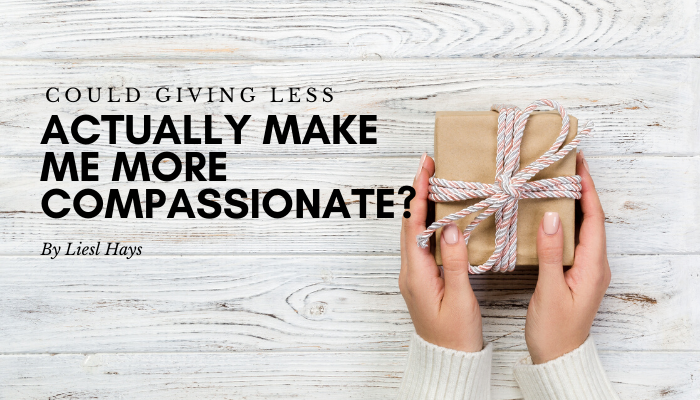In 2016, I quit my corporate job in Human Resources because my life was a total wreck. I was working a self-imposed 60 hours a week, my marriage was barely surviving and my children knew me as the last mom to pick them up from daycare.
One hot August afternoon, I turned in my laptop, badge and one of the last identities holding my fragile ego together: successful corporate career-woman. After years of therapy, self-development and “doing the work,” I discovered part of my breakdown was rooted in this: my inability to say no to anything.
This is a 3-part blog series on a topic that was critical to my healing
Part Two: Could giving less make you more compassionate?
A few years ago, I was massively over-committed in all areas of my life.
I have a doozy of a Enneagram combination (3 wing 2). For those who don’t speak Enneagram, I would summarize my personality like this:
I am a natural achiever. I am motivated by “to do” lists, achieving goals and big dreams. This is also coupled with a strong desire to help others. In other words, not only do I have my big goals to attend to, but I want to help others achieve theirs. At my worst, I throw myself into my work and lose sight of relationships. I lose touch with my feelings and put on the persona “Everything is great: my relationships, my work, my life-it’s all positive!” I also get extremely judgmental when other people aren’t as motivated as me or slow me down.
A couple years ago, I was operating on the unhealthy side of my personality. I was extremely overcommitted with my work, volunteering, and family obligations. The result: I resented the majority of people I interacted with.
One afternoon I was particularly frustrated, and I complained about it to a fellow parent at school. I gave her an earful of complaints about everybody I was currently doing “favors” for. I expected her to lament with me and talk about how overcommitted she was too.
Instead she said this,
“You sure get frustrated with other people a lot. Have you considered that saying “no” more often might make you more compassionate?
I remember being perplexed by this question. I didn’t even know how to answer it. I changed the subject quickly to avoid answering her. I thought she was being rude.
Days after that conversation, I kept seething about her question. After all, I was one of the most compassionate people alive. My heroic acts of self-less giving practically made me a saint. When she asked that question, what did she mean by it? Was she saying I wasn’t compassionate?
I decided to run this conversation by the person who is ALWAYS supposed to be on my side: my husband. Over a glass of wine, I recanted the conversation expecting him to tell me how RIGHT I was and how WRONG she was.
Instead, he was silent.
Then he asked the question I always dread, “Would you like me to listen? Or, do you want feedback?”
My husband is EXTREMELY aware giving me feedback requires I am in the right mindset. This is the question our therapist recommends he ask to determine the level of support he needs to provide. I both hate it and love it.
I begrudgingly said, “I want feedback.”
He was gentle,
“Love. Have you ever considered how much you end up resenting people in your life? You say ‘yes’ to everyone. Because you prioritize other people first, you give until you’re depleted. Then, you complain about people regularly. You often end up resenting the people you do favors for. Have you considered saying “no” more often might make you more compassionate and loving towards others?”
These words crushed my entire boundary paradigm.
I have never heard the need for boundaries communicated in such an eloquent way. He was right. My self-righteous crusade to save LITERALLY EVERYONE’S day (because I am clearly super-woman and everybody needs saving) made me judgmental and frustrated with most people. Ugh. Could giving less make me more compassionate, more loving and less resentful? I always thought boundaries would make me more SELFISH. What if it was about being more COMPASSIONATE?
From me to you:
Friend-Have you considered you cannot have true compassion for others until you have compassion for yourself?
Until you can communicate what is and isn’t okay, you will live in a constant state of overwhelm and resentment towards others. I know this is a difficult conversation because self-less giving feels like you are being the most compassionate person alive. I totally get it. However, if you’re honest with yourself, giving in heroic quantities often leaves you resentful, depleted and frustrated.
Here are some of the ways my boundary-less existence impacted me:
Burnout: A lack of boundaries always lead me to burnout. It wasn’t a matter of “if” it was when I would get burned out. Typically, I would end up resenting every person I was in a relationship with and cutting them out of my life temporarily because they were too much.
Toxic Relationships: Toxic people need boundary-less people to enable their bad behavior. I used to attract toxic relationships into my life because I didn’t say ‘no’. I reported to managers most people thought were difficult. Some of my closest friends needed therapy more than friendship. They were draining, one-sided relationships that rarely left my cup full. However, it was just as much my fault for engaging in toxic relationships as it was the perpetrator.
People took advantage of me: People would take advantage of me because I allowed it. Needy people were attracted to me because I gave of my time freely. My sister is frequently perplexed by how many complete strangers will strike up a conversation with me and it ends up being a therapy session. She had to help me master the “leave me alone look” on airplanes because I just wanted to read in peace. Whether we like it or not, we create our own reality and a lack of boundaries is an invitation to be taken advantage of.
It’s possible you can spot yourself in this blog post.
Don’t worry: your former boundary-less friend is here to help.
Check out my next blog on strategies to help you be a more compassionate (boundaried) person.
Your former boundary-less friend,



